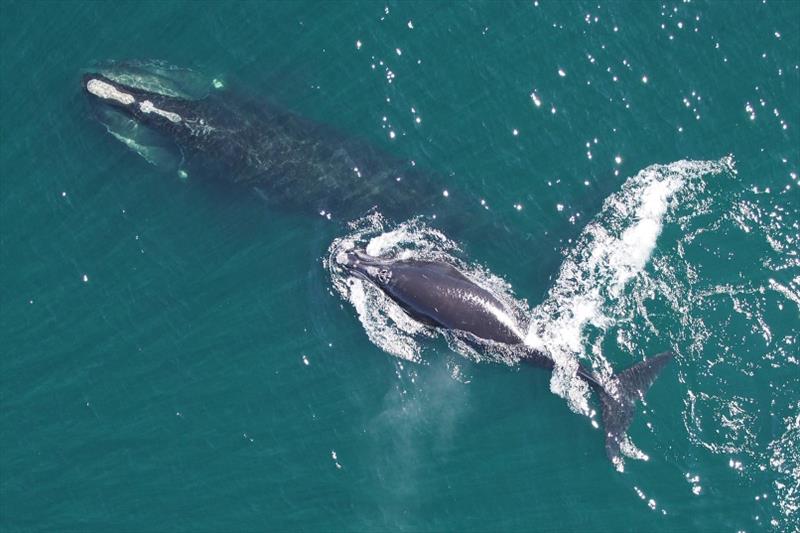
U.S., Canadian leaders discuss next steps for right whales
by Chris Oliver, NOAA Fisheries 15 Aug 2019 10:59 UTC

North Atlantic right whale mom and calf as seen from a research drone © Lisa Conger & Elizabeth Josephson / NOAA Fisheries
Last week, I met with officials from Canada's Department of Fisheries and Oceans and Transport Canada to continue our bilateral discussions on the conservation and management of the highly endangered North Atlantic right whale.
We have already been coordinating closely with Canada to share innovative techniques and solutions that foster healthy fisheries, reduce the risk of entanglements, and create whale-safe shipping practices. We requested this special meeting because the situation has become even more alarming with the recent discovery of eight dead and four entangled North Atlantic right whales in the Gulf of St. Lawrence in Canada. With fewer than 95 breeding females left, protecting every individual is a top priority, and increased efforts are needed by both countries in order to provide comprehensive protection for this transboundary species.
Specifically, we discussed measures that both countries have undertaken to reduce risk as well as plans for new, stronger measures in the future and highlighted the need for equity in these measures on both sides of the border. Strong protections are needed for right whales, and we believe that only broad-based measures will be effective and resilient to changes in whale distribution, ecological conditions, fishing effort, and shipping patterns over time.
Over the next few months, we will coordinate with Canadian officials on future gear marking schemes in order to improve the ability to identify the source of gear seen on or retrieved from large whales along the eastern seaboard. We will also continue to work with them to identify data and management gaps that are impeding recovery of right whales both in Canada and in the U.S.
Together, we are working to reduce to the maximum extent possible the risk of North Atlantic right whale entanglements in fisheries while ensuring sustainable fisheries and trade.
And while we are working on the transboundary issues, we are also working full speed ahead here at home. Just last week, we began a series of eight public scoping meetings across affected states to collect public comment on this issue. The agency will then compile the information gathered from the public meetings, along with measures created by Maine and other New England states, to develop a proposed rule under the Marine Mammal Protection Act that will further reduce risks to North Atlantic right whales. Although ambitious, we are aiming to have a proposed rule drafted by the end of the calendar year and hope to have it available for public comment in early 2020.
Chris Oliver
Assistant Administrator for NOAA Fisheries